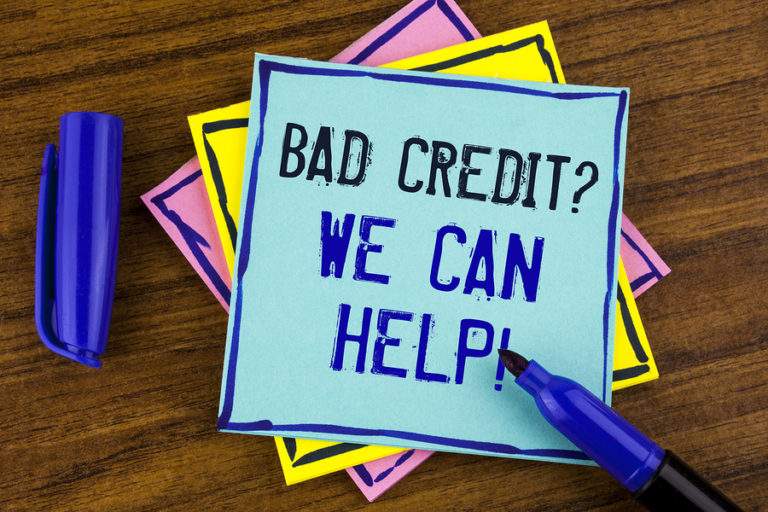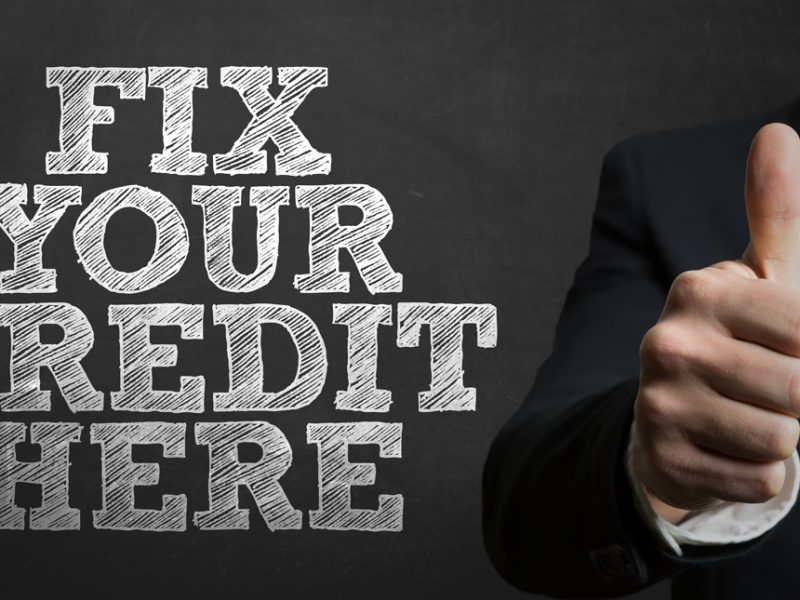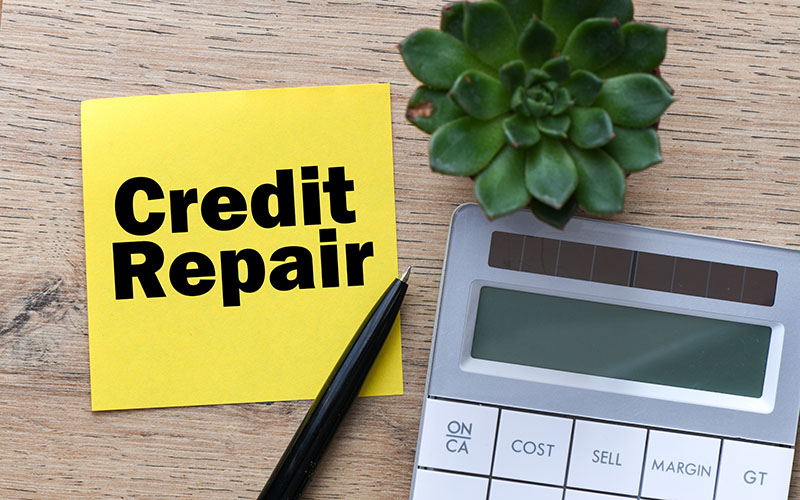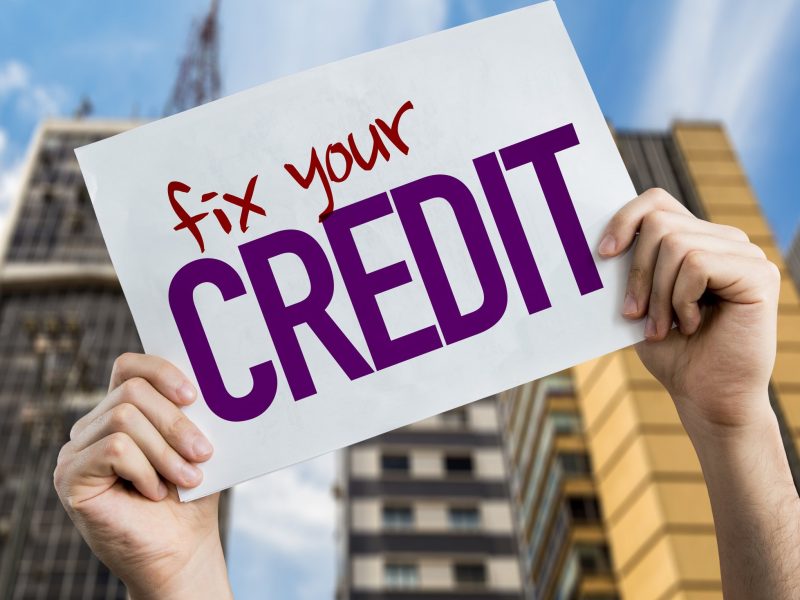Should I Pay to Use Credit Repair Services?
If you’ve been trying to build your credit score, you may be considering hiring a credit repair service to help. These companies aim to build your credit by disputing outdated or incorrect information on your credit reports, following up on results, and monitoring to be sure errors don’t reappear.
Credit repair can cost around $100 a month and take several months — with no guarantee that your credit score will be higher at the end. It is important for you to note that credit repair can’t do anything that you can’t do on your own, and it can’t remove negative marks from your credit reports if they’re accurate, timely, and verifiable.
- What Can Credit Repair Services do For me?
- How Much Will Credit Repair Services Cost me?
- Can I Improve my Credit Myself?
- How Can I Fix my Credit Score Fast For Free?
What Can Credit Repair Services do For me?
Legitimate credit repair services check your credit reports for information that shouldn’t be there and dispute it on your behalf. Many of them also check to be sure the information doesn’t reappear.
Read Also: Potential Scalability of a Credit Repair Company
When information on your credit reports is disputed, credit bureaus have 30 days to investigate. However, they don’t have to investigate disputes they deem “frivolous.”
Among the errors that can be addressed:
- Accounts that don’t belong to you.
- Bankruptcy or other legal actions that aren’t yours.
- Misspellings, which may mix in negative entries that belong to someone with a similar name — or may mean positive entries aren’t showing up when they should.
- Negative marks that are too old to be included.
- Debts that can’t be validated and verified.
Credit repair is often a long-term process that gradually raises your credit score. A credit score is a number that reflects your creditworthiness. The higher the number, the better. If you want any type of loan or credit card, you’ll need a decent credit score.
There are a number of ways to approach credit repair and each is unique to a specific situation. Generally, though, credit repair starts with catching up on any late payments. From there, payments are consistently made on time. Being late on a payment is one of the worst things you can do to your credit.
Once debts are made current and you’ve been making on-time payments, you should start noticing an increase in your credit score. As more debt is paid down, your score will continue to rise.
How Much Will Credit Repair Services Cost me?
Having someone guide you through the credit repair process can be a great idea for those who want more assistance. It seems there’s no end to the number of companies willing to take your hard-earned cash in exchange for a higher credit score. You can expect to spend at least $60/month up to over $100/month for credit repair services across 4 to 12 or more months. The length of time will depend on the complexity of your repair.
According to a recent study, 48% of consumers who used a company for credit repair saw their score rise by over 100 points within 6 months.
A credit repair service will look at your credit report, put together a game plan, and have you execute on it, while checking progress with you each month. You’ll have someone available to answer all of your questions as well.
If your credit repair is complex and you’re more comfortable speaking with someone instead of researching on your own, investing a few months of payments into education and assistance with a credit repair company might be worth it. If after a few months you feel comfortable executing on the remaining tasks for your credit repair, you can discontinue the service and save a few hundred dollars.
Before you use a company, check out this excellent deep dive into the Secret World Of Debt Settlement and understand what you’re potentially getting into.
Below are companies that provide credit repair services:
- CreditRepair.com: $14.99 one-time fee plus $99.95/month. They claim to increase your credit score by 40 points in 4 months.
- KeyCreditRepair.com: $139.95/month to $189.95/month, depending on the plan. They claim an increase of 90 points on average in 90 days.
- SkyBlueCredit.com: $59/month. Claim: “Clean up your credit report. Improve your scores.”
Can I Improve my Credit Myself?
Repairing credit by yourself can be done. How successful you’ll be depends on the complexity of your situation. Credit repair does take time and lots of research — if you are starting from the beginning. But if you are ambitious, repairing your credit by yourself can certainly be done.
The first step is to get a copy of your credit report, which you can do at AnnualCreditReport.com. Then go through your report and identify all overdue accounts and anything that might be incorrect. You can contact each credit bureau to fix any mistakes.
Following the steps mentioned in the previous section are a good starting point:
- Bring any debts current by paying overdue amounts and late fees.
- Continue to make on-time payments.
From there, access to new credit can also help improve your credit score. If you have a low credit score, it’s unlikely any credit card company will issue you an unsecured credit card. However, you can apply and likely get approved for a secured credit card.
Secured credit cards require a deposit. You can spend up to the deposit amount. It works just like an unsecured credit card except with a lower credit limit. Your secured credit card activities will be reported to credit bureaus, which is what you want.
As an aside, try to put away $1,000 in cash for an emergency fund. This will help to pay for emergencies with cash rather than putting them on a credit card. Unexpected expenses may include car repairs, a broken hot water heater, or a medical bill.
Start by checking your credit reports from the three major credit reporting bureaus — Experian, Equifax, and TransUnion — by using AnnualCreditReport.com. You have access to free weekly credit reports from all three bureaus through the end of 2022. Then follow these steps:
- Dispute errors on your credit report directly with the credit bureaus. All three bureaus have an online dispute process, which is often the fastest way to fix a problem.
- Look for information that’s accurate but can’t be substantiated. Unverifiable information has to be removed, although it may be reinstated if it’s verified later. An example might be a debt to a retailer that’s now out of business; unless the retailer sold the debt to a collection agency that can show ownership, it might be unverifiable.
- Work on your payment history. Your record of paying bills on time is the most important factor affecting your credit score. Missed payments can drag down your score.
- Use less of your available credit. How much of your available credit card limit you’re using is known as your credit utilization ratio. The lower it is, the better for your score. If you can afford to, consider making multiple small payments during the billing cycle, as well as other strategies to lower credit utilization.
Whether you’re repairing your own credit or paying a company to do it for you, it’s smart to have a plan for building and maintaining your credit going forward.
How Can I Fix my Credit Score Fast For Free?
If you’re struggling with a low score, you’re better positioned to make gains quickly than someone with a strong credit history. Here are some strategies to quickly improve your credit:
1. Pay credit card balances strategically
The portion of your credit limits you’re using at any given time is called your credit utilization. A good guideline: Use less than 30% of your limit on any card, and lower is better. The highest scorers use less than 7%. (You can track your credit utilization on each card and overall by viewing your credit score profile with NerdWallet.)
You want to make sure your balance is low when the card issuer reports it to the credit bureaus because that’s what is used in calculating your score. A simple way to do that is to pay down the balance before the billing cycle ends or to pay several times throughout the month to always keep your balance low.
Impact: Highly influential. Your credit utilization is the second-biggest factor in your credit score; the biggest factor is paying on time.
Time commitment: Low to medium. Set calendar reminders to log in and make payments. You may also be able to add alerts on your credit card accounts to let you know when your balance hits a set amount.
How fast it could work: Fast. As soon as your credit card reports a lower balance to the credit bureaus, that lower utilization will be used in calculating your score.
2. Ask for higher credit limits
When your credit limit goes up and your balance stays the same, it instantly lowers your overall credit utilization, which can improve your credit. If your income has gone up or you’ve added more years of positive credit experience, you have a decent shot at getting a higher limit.
Impact: Highly influential, because utilization is a large factor in credit scores.
Time commitment: Low. Contact your credit card issuer to ask about getting a higher limit. See if it’s possible to avoid a “hard” credit inquiry, which can temporarily drop your score a few points.
How fast it could work: Fast. Once the higher limit is reported to credit bureaus, it will lower your overall credit utilization — as long as you don’t use up the extra “room” on the card.
3. Become an authorized user
If a relative or friend has a credit card account with a high credit limit and a good history of on-time payments, ask to be added as an authorized user. That adds the account to your credit reports, so its credit limit can help your utilization. Also called “credit piggybacking,” authorized user status allows you to benefit from the primary user’s positive payment history. The account holder doesn’t have to let you use the card — or even give you the account number — for your credit to improve.
Make sure the account reports to all three major credit bureaus (Equifax, Experian, and TransUnion) to get the best effect; most credit cards do.
Impact: Potentially high, especially if you are a credit newbie with a thin credit file. The impact will be smaller for those with established credit who are trying to offset missteps or lower credit utilization.
Time commitment: Low to medium. You’ll need to have a conversation with the account holder you’re asking for this favor, and agree on whether you will have access to the card and account or simply be listed as an authorized user.
How fast it could work: Fast. As soon as you’re added and that credit account reports to the bureaus, the account can benefit your profile.
4. Pay bills on time
No strategy to improve your credit will be effective if you pay late. Worse, late payments can stay on your credit reports for 7½ years.
If you miss a payment by 30 days or more, call the creditor immediately. Pay up as soon as you can and ask if the creditor will consider no longer reporting the missed payment to the credit bureaus. Even if the creditor won’t do that, it’s worth getting current on the account ASAP. Every month an account is marked delinquent hurts your score.
Impact: Highly influential. Your record of paying bills on time is the largest scoring factor in both FICO and VantageScore credit scoring systems.
Time commitment: Low. Prevent missed payments by setting up account reminders and considering automatic payments to cover at least the minimum.
How fast it could work: This varies, depending on how many payments you’ve missed and how recently. It also matters how late payment was (30, 60, 90 or more days past due). Fortunately, the impact of delinquent payments fades over time, and adding more positive credit accounts can help to speed that up.
5. Dispute credit report errors
A mistake on one of your credit reports could be pulling down your score. Disputing credit report errors can help you quickly improve your credit.
You’re entitled to free reports from each of the three major credit bureaus. Use AnnualCreditReport.com to request them and then check for mistakes, such as payments marked late when you paid on time, someone else’s credit activity mixed with yours, or negative information that’s too old to be listed anymore.
Once you’ve identified them, dispute those errors.
Impact: Varies, but could be high if a creditor is reporting that you missed a payment when you didn’t.
Time commitment: Medium to high. It takes some time to request and read your free credit reports, file disputes about errors and track the follow-up. But the process is worthwhile, especially if you’re trying to build your credit ahead of a milestone such as applying for a large loan. If you’re planning to apply for a mortgage, get disputes done with plenty of time to spare.
How fast it could work: Varies. The credit bureaus have 30 days to investigate and respond. Some companies offer to dispute errors and quickly improve your credit, but proceed with caution.
6. Deal with collections accounts
Paying off a collections account removes the threat that you will be sued over the debt, and you may be able to persuade the collection agency to stop reporting the debt once you pay it. You can also remove collections accounts from your credit reports if they aren’t accurate or are too old to be listed.
Impact: Varies. An account in collections is a serious negative mark on your credit report, so if the collector agrees to stop reporting the account it could help a great deal.
If the collector keeps reporting the account, the effect depends on the scoring model used to create your score. The FICO 8 model, which is most widely used for credit decisions, still takes paid collections into account. However, more recent FICO models and VantageScores ignore paid-off collections.
Time commitment: Medium. You’ll need to request and read your credit reports, then make a plan to handle collections accounts that are listed.
How fast it could work: Moderately quickly. On credit scores that ignore paid collections, such as VantageScore and newer FICOs, as soon as the paid-off status is reported to credit bureaus it can benefit your scores. In other cases, such as disputing a collection account or asking for a goodwill deletion, the process could take a few months.
7. Use a secured credit card
Another way to build or rebuild your credit is with a secured credit card. This type of card is backed by a cash deposit; you pay it up front and the deposit amount is usually the same as your credit limit. You use it as a normal credit card, and your on-time payments help build your credit.
Impact: Varies. This is likeliest to help someone new to credit with accounts or someone with dented credit wanting a way to add a more positive credit history and dilute past missteps.
Time commitment: Medium. Look for a secured card that reports your credit activity to all three major credit bureaus. You may also consider looking into alternative credit cards that don’t require a security deposit.
How fast it could work: Several months. The goal here is not just having another card, although that can help your score a bit by improving your depth of credit. Rather, your aim is to build a record of keeping balances low and paying on time.
8. Get credit for rent and utility payments
Rent reporting services can add your on-time rent payments to your credit reports. Rent payments are not considered by every scoring model — VantageScores include them but FICO 8 does not, for example. Even so, if a would-be creditor looks at your reports, rent records will be there, and a long record of consistent payments can only help.
Experian Boost also can help but in a more limited way. You link bank accounts to the free Boost service, which then scans for payments to streaming services and phone and utility bills. You choose which payments you want to be added to your Experian credit report. If a creditor pulls your FICO 8 using Experian data, you get the benefit of that additional payment history.
Impact: Varies.
Time commitment: Low. After the initial setup, no additional time is needed.
How fast it could work: Boost works instantly; rent reporting varies, with some services offering an instant “lookback” of the past two years of payments. Without that, it could take some months to build a record of on-time payments.
Should I Pay to Use Credit Repair Services?
Even if you decide to fix your credit yourself, there are some advantages that come with paying for a credit repair service. Let’s consider some below.
Here are some of the reasons why using a credit repair service may be right for you.
1. It’s easier and quicker than trying to repair your credit on your own.
“Companies that specialize in credit repair save you the time and hassle of trying to do it yourself,” said consumer and money-saving expert Andrea Woroch. “They have stronger negotiating power and work with your creditors to consolidate and reduce your outstanding debt.”
Credit repair services may be able to boost your score more quickly than you would be able to do on your own, which could save you money in the long term.
“While you may end up paying around $100 per month for credit counseling services, they can sometimes end up paying for themselves — and then some,” said Tony Wahl, director of operations at Credit Sesame. “In some cases, credit repair services can help repair your credit faster, which means that you can start benefiting from having a better credit score sooner. This can include lower interest rates, which can help save you even more money in the long run.”
2. A credit repair service will show you exactly what’s causing your credit issues, which can be helpful if you’re unsure why your score is low.
“These services can help you figure out what exactly is wrong with your credit, even if they can’t fix them,” said Jack Cunningham, founder of the personal finance blog Nickel & Dime Decade. They can also help you understand what needs to be done to improve your score.
Read Also: Credit Repair Company That Works
“If you’re unsure where to start, credit repair services are a great resource and can provide you with a personalized plan,” Wahl said.
3. It may the push you need to improve your credit if it’s a process you’ve been putting off.
“There’s nothing these companies will do that you can’t do yourself, but you also have to be willing to do it,” Woroch said. “If you don’t take steps — and haven’t taken steps thus far — hiring a professional and paying some fees may be worth it to finally repair your past credit mistakes.”





